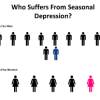- Empty cart.
- Continue Shopping
A Guide to Understanding Food Allergies in Men

Food allergies are a growing concern, affecting individuals of all ages and genders. While commonly associated with children, food allergies can also significantly impact men. Understanding the signs, triggers, and management of food allergies is crucial for maintaining optimal health.
What Are Food Allergies?
Definition and Mechanism
A food allergy is an abnormal immune response to specific proteins in certain foods. When the immune system mistakenly identifies these proteins as harmful, it triggers a cascade of reactions that can lead to a range of symptoms, from mild discomfort to severe, life-threatening reactions.
Common Food Allergens
Major Culprits
Certain foods are more likely to cause allergic reactions. These include:
- Tree Nuts: Such as almonds, walnuts, and cashews.
- Peanuts: Despite their name, peanuts are legumes, not nuts.
- Shellfish: Including shrimp, crab, and lobster.
- Fish: Such as salmon, tuna, and cod.
- Dairy: Milk, cheese, and other dairy products.
- Eggs: Particularly egg whites.
Recognizing Food Allergy Symptoms
Immediate Reactions
Symptoms of a food allergy can manifest within minutes or even seconds after consuming the allergenic food. These may include:
- Hives or skin rash
- Itching or tingling in the mouth or throat
- Swelling of the lips, face, tongue, or throat
- Difficulty breathing or wheezing
- Nausea or vomiting
- Diarrhea
Delayed Reactions
In some cases, food allergy symptoms may not appear until hours or even days after consumption. These may include:
- Digestive issues (e.g., abdominal pain, diarrhea)
- Skin reactions (e.g., eczema)
- Respiratory symptoms (e.g., nasal congestion, coughing)
Testing and Diagnosis
Allergy Testing
Allergists use various tests to diagnose food allergies. These may include skin prick tests, blood tests for specific antibodies, and oral food challenges under medical supervision.
Managing Food Allergies
Strict Avoidance
The primary treatment for food allergies is to completely avoid the allergenic food. This requires vigilant label reading, asking about ingredients when dining out, and being aware of potential cross-contamination.
Emergency Action Plan
Individuals with severe food allergies, especially those prone to anaphylactic reactions, should have an emergency action plan in place. This may include carrying an epinephrine auto-injector and knowing when and how to use it.
Living with Food Allergies
Dietary Adjustments
Navigating a food allergy requires making conscious choices about what you eat. This may involve finding suitable alternatives and experimenting with new recipes.
Effective Communication
Open and clear communication with family, friends, and colleagues is vital. This ensures that others are aware of your food allergies and can take appropriate precautions.
Seeking Support
Joining support groups or online communities for individuals with food allergies can provide valuable information, resources, and a sense of belonging.
Conclusion
Understanding food allergies in men is essential for effectively managing this condition. By recognizing symptoms, seeking proper diagnosis, and implementing a comprehensive management plan, individuals with food allergies can lead healthy, fulfilling lives. Remember, with the right knowledge and support, living with a food allergy can be navigated successfully.








